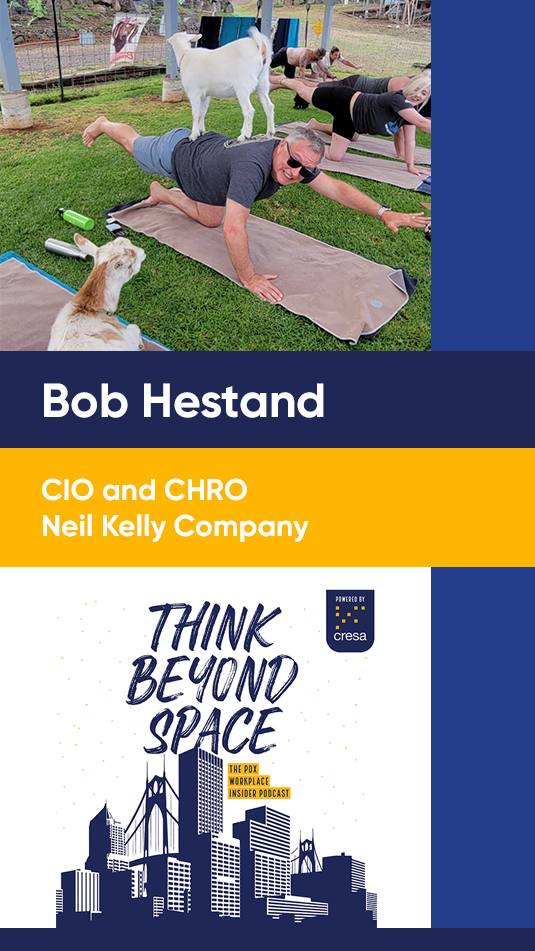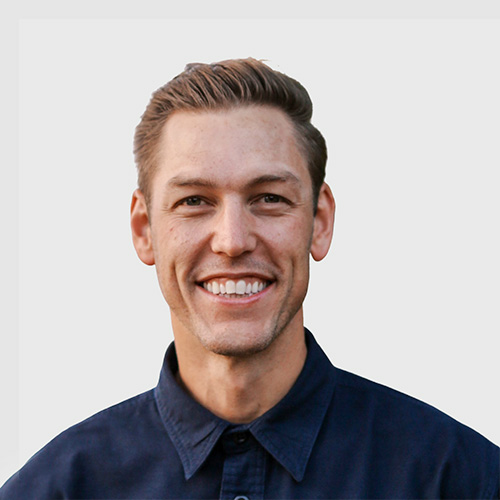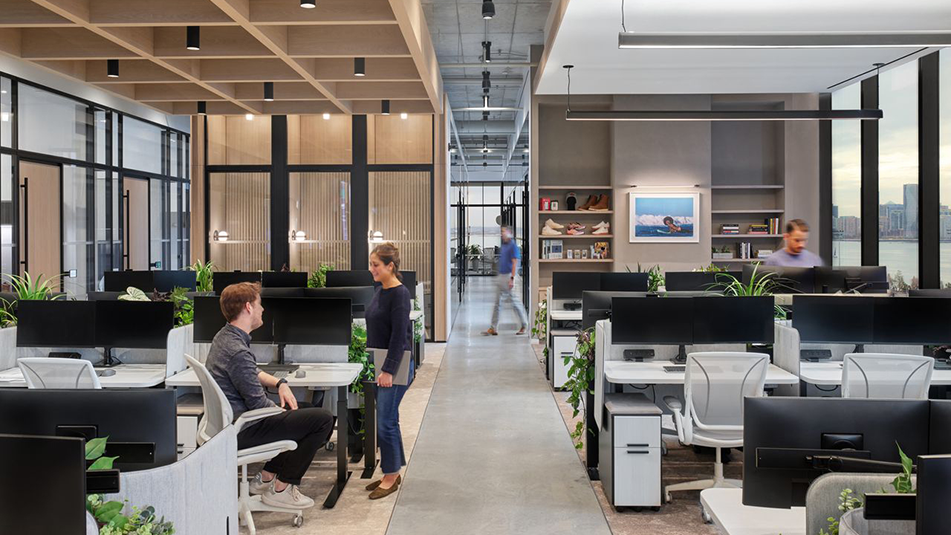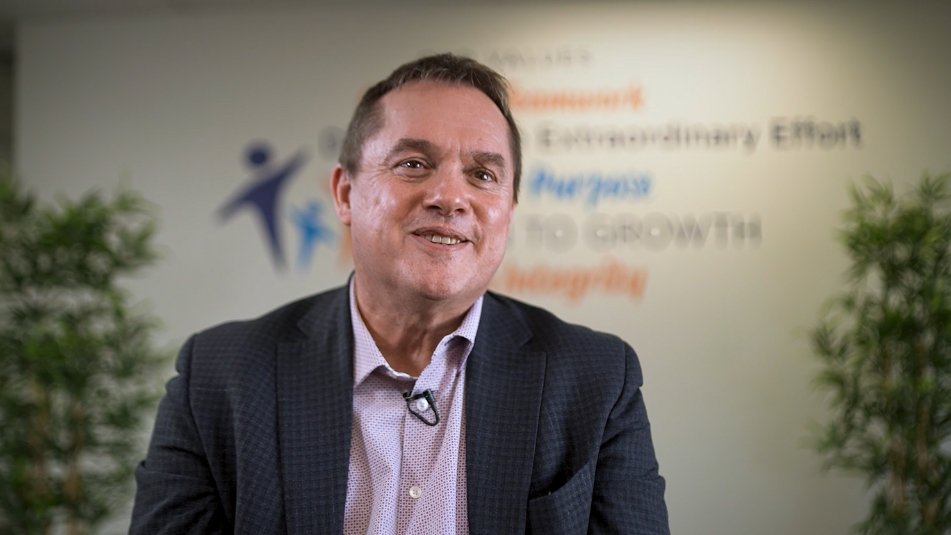Bob Hestand, CIO and CHRO at Neil Kelly Company

Bob Hestand is the Chief Human Resources Officer and Chief Information Officer for Neil Kelly Company, the largest design/build and remodel company in the Northwest.
Learn more at Neilkelley.com
---
(We use an audio transcription service; please excuse any errors)
Blake St. Onge 01:13
Welcome back to the podcast. I'm really excited for our guest today. Bob and I have had a chance to get to know each other over the course of the last six months but on the show is Bob Heston sounds like Charlton Heston. He is the Chief Information Officer and Chief Human Resource Officer here in Portland for Neil Kelly Company. So Bob, for those that don't know about you or don't know about Neil Kelly, and you gave me some insight around Neil Kelly, which I didn't know about, share a little about who you are, who the company is, where you got your start, how do you got to where you are today, and then we'll start the journey there.
Bob Hestand 02:08
Perfect. Well, about me, I’m originally from Indiana, I still consider myself a Hoosier because I went to Indiana University, go Hoosiers, and started working for the American Red Cross when I was back in high school. So I was teaching first aid and CPR classes then, I went on to work in the Red Cross for a total of 28 years. So halfway through my Red Cross career, I switched from health and safety to Disaster Services. And then from Disaster Services, I switched into IT. So I've kind of ran the gamut of the Red Cross services. Nobody uses the Red Cross because it's a good thing, right? It's all because they've had a very bad day, right? So I’ve been able to do some pretty cool things, travel to some pretty cool places in the world, some of them that don't exist anymore, because they were a disaster zone, and so forth. After that, after I left the Red Cross, I went into consulting here in town for a company called Markham for a little bit. And then I found my way to Neil Kelly, almost exactly four years ago, this last weekend.
Blake St. Onge 03:10
And so you then work for the Markham Group for a little while. And then decided to join Neil Kelly. And I will say that it doesn't always seem like a pretty linear route to go from IT lead to people lead. I mean, they're very drastically different things. But you seem to bring them together well. So walk us through what an IT guy do in HR.
Bob Hestand 03:33
The most common question I get is “How the heck did that happen?” , my general answer is I lost a bet. But that couldn't be farther from the truth, actually. Someone asked for it. You know, I had been at Neil Kelly, two years, two and a half years, when our previous HR vice president decided to retire. And she was a hard act to follow. But I'm like, “ , I can do this.” I was in grad school, getting my MBA at the time. So I could do anything. I took over HR in March of 2020. There's no better time to be in charge of HR and IT than the start of a global pandemic. And so
Blake St. Onge 04:14
You're still smiling!
Bob Hestand 04:18
I am! It's the coffee I got downstairs. “Better living through modern chemistry.” You know, it's been a very interesting time. But I have to say, I think the interesting thing about merging those two, seemingly very disparate groups is there's a lot of process involved. And so I think sometimes IT people can bring process thinking or systems thinking to other areas of our business. If you look at the two areas of an organization that touch all parts of the organization, it's really IT and HR. So I was familiar with all the different roles and what people did because we had to outfit them with technology and be ready for them. So I kind of knew all those things anyway. Now it’s just getting into, as you say the “people” part, and the policies and the processes.
Blake St. Onge 05:05
So Neil Kelly Company – correct me if I’m wrong-- is the largest construction renovation company in the country?
Bob Hestand 05:12
It depends on who you ask. We think we're the largest.
Blake St. Onge 05:17
So how big is it? I mean, how big is the firm in terms of just people-wise? Locations, that sort of stuff that you had to sort of get your arms around in March of 2020.
Bob Hestand 05:27
Boy, in March of 2020, we were at about 153 people. Today, we're at 217.
Blake St. Onge 05:34
Wow. So it's nearly 100% growth.
Bob Hestand 05:37
Our talent acquisition person, our recruiter, basically today's her last day, and we were kind of reviewing her tenure. She started in February of 2020. Almost 50% of all employees and Neil Kelly were recruited by her. So it is unbelievable. We have average turnover for a construction company like our size, but at the same time, our growth. So we have a lot of folks who've retired. And one of the interesting things about Neil Kelly, you know, we've been around for 74 or 75 years. We have people that have worked there since the day they graduated from high school. And they're going to retire this year. So we have a lot of folks who are at retirement age. So some of our turnover is coming from that. But it's been a wild ride in this last year and a half. Neil Kelly is well-respected throughout the remodeling industry. We call ourselves a design/build/remodel firm, Neil actually started that movement. So you'll see those design/build/remodel firms all over the country now and all started right here in Portland with Neil Kelly.
Blake St. Onge 06:46
And his son Tom is the CEO now, correct?
Bob Hestand 06:49
Tom is the President. And the other two generations are in the queue. So Garrett Kelly is our Vice President of Production today. And Garrett’s son, Tonto proudly wears his Neil Kelly onesie, but he's on his way.
Blake St. Onge 07:04
, I'm involved in the Downtown Rotary Club of Portland. And I know the Kelly family and Tom Kelly has been a big proponent of rotary in our rotary club. And it's been great to have.
Bob Hestand 07:16
Neil was a huge proponent of the North Albina Rotary Club. In fact, the North Albina Rotary, still to this day has a Neil Kelly scholarship fund. And so just a couple months ago, we gave four students from the North Portland area (mostly from Jefferson High School, but not exclusively) scholarships to four universities. I was in a local little butcher deli shop just down the street. And the guy there said, “You work for Neil Kelly?” I said, “ ”, he goes, “I knew old man Kelly.” And he was the scholarship recipient when he was in high school, and now he owns a butcher shop. And you just saw his face light up talking about Neil. And anywhere I go, people talk about Neil in that way.
Blake St. Onge 08:03
When COVID hit what did your leadership team do to meet, disseminate information? How did you guys pivot from what you guys were doing? I mean, what's the last 18 months been like for all of you amidst growing by 100 plus people?
Bob Hestand 08:24
Well, the growth didn't start immediately the cuts came first. Right, so we first evaluated, what is our business going to look like when we come out of this thing? And a couple months, right? (We were so naïve then). And so we made some very strategic layoffs, knowing that our business was going to look different. But we also made some reductions, everything from reduced hours, reduced pay, etc. What happened is we went down by about 50% of our normal lead operations right there in the beginning. But it wasn't that long before they started to increase. So by the end of the year, we were up almost 35% in our leads. You know, if you think about people, they're sitting at home, they're staring at those same walls, they're sharing that room with a third grader there, parents working out of that same room. So they eventually said, “Well, I'm not going to Europe. So let's remodel.” So we did see a lot of folks starting to call us and say, “hey, I want to be able to use my space differently. I want to add a lot of flex space. I want it to be a home gym when I want it to be a home gym, and I want it to be a class or when it can be a classroom. So we saw a lot of folks do that. We also saw a lot of folks change their thinking about aging in place or long-term care. So a lot of folks say “hey, I want to build an ADU or I want to build out a space for grandma to come and stay with us because, you know, is it really safe to be in a long-term care facility?” So we saw a lot of folks really rethink their space. So anyway, what happened at first as we construct it, we came in right, as a leadership team we met – seemed like practically daily, practically hourly, in the beginning – what do we need to do? How do we take care of our people? How do we take care of our customers, and so forth. So the biggest lesson, I think we learned is communicate. Communicate, and listen, and do it often. So we were issuing very frequent updates “Hey, this is what we're doing. This is what we know, this is what we're doing. This is what we know.” And sometimes we didn't have anything new to share. But we still communicated anyway, just to let people know that we're still out there and we're listening. I would randomly make phone calls to employees around the company. “Hey, how are you doing? What's going on? What do you need?” etc. I think they needed that connection as well, which was great. From a technology perspective – because that's my other hat – I'm happy to say, we didn't have to do anything. We had the appropriate number of licenses we needed for things like VPN and, and software, etc. All that was already there. We had collaboration tools. We’re an Office 365 shop, so we had Microsoft Teams and all those things. The most we had to do is teach people how to use it. So we spent about a week saying, “Go home, take what you need. Take your phone, take your desktop, take your laptop, take your monitors, take whatever we need. Take the plant off your desk. We don't care. Take it.” And our folks, I have to say our folks were amazing. No complaining, no whining. They all just pitched in and did it, helped each other out, helped each other transition to this new work world. We were not a work-from-home community. That's not what we did. And suddenly we were, our folks handled it great. And I think you know, the other key thing was acknowledging that, hey, you're gonna have a dog jump into the middle of your video meeting. Kids are gonna cry, welcome it in and say hello! I've gotten to know some of our employees’ children quite well, you know, they pop into a screen even now. They're like, “Hey Bob!” And that was great. And I think that really speaks to our culture and our community. That we're very welcoming. And one of our – we call our Neil Kelly nine – is “bring your whole self to work”, and bring your true self to work. And that's exactly what we did.
Blake St. Onge 12:26
And then for the people that are in the field, your teammates that are in the field, in terms of a time like this, just before the supply chain constraints, the challenges with materials? Are you guys feeling that too on your jobs? Or in the field for your people? What's that been like? Because you have to manage that too.
Bob Hestand 12:44
We do. I have to say, our field personnel are carpenters. So we employ most of our carpenters. We sub out some things as far as framing and things like that. But our finished carpentry and cabinet work and everything is all done in house. Our folks are amazing. I was just on a meeting with our Eugene team this morning. They were faced with challenges of getting some of the wrong sizes. No problem. You know, we get out some saws, we get some tape measures, and they figure it out. They're so clever. They're so talented. So we couldn't be any happier with that. There's nothing we can do about a dishwasher that’s still sitting on a boat somewhere that we don't have yet. So yes, we do have challenges there. We have, unfortunately, some homeowners, so…
Blake St. Onge 13:28
I would imagine some customers are gonna be all over you. And there's gonna be others where they understand the situation.
Bob Hestand 13:38
You know, I think because the whole world is in this same situation. I haven't heard too many issues with customers or homeowners being really upset. They know, they understand. It's not like we don't want it to be over as well. But we're all in this together.
Blake St. Onge 13:53
Yeah, man. I think that leadership stretch that has been put on the shoulders of HR and IT… right in the intersection of what that is, and the key people sort of engaged and motivated and challenged and all those sorts of things. I mean that's a big feat that you guys have to carry.
Bob Hestand 14:14
Again, I go back to our culture and our community. One of the things I hear from especially new employees, they are just shocked and overwhelmed when they join us. The people say, “How can I help? What do you need?” And it comes from all over the organization. As I mentioned earlier, our talent acquisition person’s last day is today. Our office manager in our Eugene office, raised her hand and said, “Hey, I was 11 years in HR in the army. What can I do to help?” I mean, just out of the woodwork. Amazing. But again, that's part of our culture.
Blake St. Onge 14:51
Yeah, I would say in your industry you don't have a lot of that. You'd have some of this touchy feely, some of the good, strong cultures in tech companies and insurance firms and some of these others, but I think in the construction business, sometimes that can be a challenging thing. And for you guys to hold out for 74 or 75 years, wow. How many locations do you guys have?
Bob Hestand 15:18
We have four locations. Portland is our headquarters. We have offices in Seattle, Bend and Eugene.
Blake St. Onge 15:25
And so my guess is that for 28 years being an American Red Cross, and the things that you learned there, helped train you in some way or helped shape you in some way to do what you're doing today from a people side. The empathy.
Bob Hestand 15:39
Yeah, Blake. I think so. I mean, that and the preparedness. So remember, I said we didn't need to do anything. When I first got to Neil Kelly, we really weren't backing up our systems. Not anybody's fault. It's just not what we did. So we had enough licenses to do everything. Because I had the mindset to think, “what happens if our building burns down? Or an earthquake?”
Blake St. Onge 16:09
You had that disaster recovery mindset.
Bob Hestand 16:13
Right, I hadn’t really thought of a pandemic. What's funny is my peers at the Red Cross used to laugh at me because I was probably the only IT person with ziplock bags in their server room. Why on earth would we have Ziploc bags? We have volcanoes, right? And so one of the first things you do if the volcano blows is you shove your hard drives into Ziploc bags, because ash from a volcano will just destroy hard drives. So it’s that thinking. And you're right, I think that the empathy, the understanding of everyone's situation is different. Just listen, be yourself.
Blake St. Onge 16:52
So this is a personal question: Do you have, at home, like a doomsday plan?
Bob Hestand 16:57
Oh, I'm the worst!
Blake St. Onge 16:59
You've probably got all the water filtration systems and canned foods, so we're all going to your house if…
Bob Hestand 17:07
Don't go to my house! Seriously, I am the worst.
Blake St. Onge 17:12
So you don't have any of that?
Bob Hestand 17:13
No, I don't. Um, we have some water. We probably have more dog food than we do people food stored. But my mental state throughout my career, 28 years of my career, was “where would I be in a disaster?” I'm going to be in in a shelter in a headquarters or somewhere like that. I'm not going to be at home. And so, I have to say my family would probably come with me because they're always been helpful volunteer-minded folks. So we never really thought much at home. So thank you, Blake. I know what I’m going to do tonight.
Blake St. Onge 17:47
Yeah. Dale Kunce who runs the American Red Cross here. He was part of the U40 Program at Rotary Club of Portland. Great, great guy. And so I was just curious if you still are involved in any capacity with them?
Bob Hestand 18:04
No, I sort of distanced myself when I left. Not because I was upset or mad, it was time to make that break. So I would imagine when I go into retirement, if I ever do that, then I would probably pick up that volunteer spirit again, or volunteer for National Park. That sounds more exciting actually.
Blake St. Onge 18:27
Okay, so if you had a chance to have coffee, or a cocktail with anyone history, past or present, who would that be?
Bob Hestand 18:35
You sent me this question.
Blake St. Onge 18:36
I did.
Bob Hestand 18:38
And I can't tell you how much brainpower I've given to this question! I can answer all the other questions off the top of my head, but really had to think about this. So I'm going to totally wimp out on you. And I'm going to go for a dinner party. Because I don't think I could sustain a conversation with some of these great thinkers that I'd like to sit with. You know, I'd be embarrassed. I need some buffers. So when I was thinking about this, I would love to sit down at the dinner party at the table. I think it'd be great to have Abraham Lincoln and Barack Obama sitting there talking about, you know, the differences between their two presidencies. And holy cow, what would Lincoln say about our first African American president? I think that'd be an interesting connection. I’d love to have Gandhi sit there with them just to talk about some of those things. Martin Luther King would be great to have in there too.
I'm a big Lewis and Clark fan. So I would have to have Lewis and Clark sitting there with Jefferson telling him the trail. I love for Jefferson and his mind is listening and soaking in and asking all these questions. I think that would be interesting. I think it'd be interesting to have Milton Friedman sitting next to Bernie Sanders. That should be a very interesting moment. I think having like Greta Thunberg, sitting with John Muir and Teddy Roosevelt would be interesting to hear those sorts of things. Who else… I think my table might be full now.
Blake St. Onge 20:06
No, this is Thanksgiving! It can be a long table.
Bob Hestand 20:09
Well, you gotta have somebody cook. So I went to culinary school, so I gotta have Julia Child and Jacque Pepin there. And just for fun, I think Guy Fieri should be the sous chef, mostly because I want to see Julia Child just totally boss him around. That would be kind of fun. I think we need to document this event because it's pretty interesting. Also I'm a photographer. So I think Ansel Adams has to be there. And since my wife is going to be there, we got to have entertainment. I'm sure she would want Lady Gaga there.
Blake St. Onge 20:42
Am I on the invite list? I’d just keep my mouth shut and just listen.
Bob Hestand 20:47
Absolutely. Yes. But which I think is what I would do, just keep my mouth shut and listen to some of these folks talk. Maybe I have to break up Bernie and Milton, might be interesting.
Blake St. Onge 20:57
Oh, good. That's a great answer. Great answer. It sounds like you put a lot of thought into it, which I very much appreciate. I mean, that that's a that was a very thoughtful response.
Bob Hestand 21:12
There are so many people in history, you know, Ruth Bader Ginsburg just sitting there having a conversation with her. Gandhi, as I mentioned. So many people in history. I've often said, if I could go back and do high school history class over again – I think or actually pretty much any class in high school – where you weren't worrying about, pimples and dates, all that kind of stuff. Just imagine what you could learn!
Blake St. Onge 21:38
Hindsight is 20/20, right? Because now that we're, you know, you're IN life. It's like, “I wish I would have done that!” I mean, you had the time to spend doing it. And now it’s like you take your free time to do that. And you have to balance all the other things. So for those that want to learn more about you and learn more about Neil Kelly, where can they find you?
Bob Hestand 22:00
Neilkelley.com It's a great place to start. No matter if you're in Portland, Eugene, Bend, or Seattle. For me, LinkedIn is a great place to start. There's a couple other Bob Hestands if you actually Google them, so I don't write film scripts or something like that. So you'll see some of my photography there, there some other things that are on there as well.



